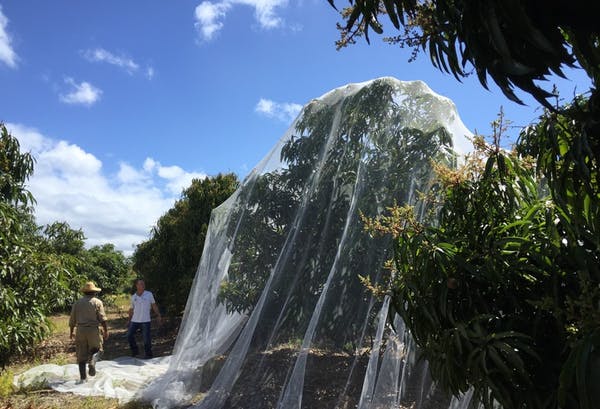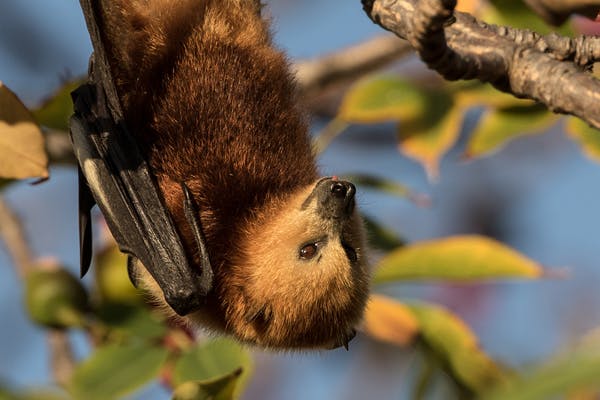News
Renewed conflict over endangered fruit bats in Mauritius calls for new approaches
Alexandra Zimmermann (WildCRU & IUCN SSC Human Wildlife Conflict Task Force), Ewan Macdonald (Oxford University Said Business School & WildCRU) and Tigga Kingston (Texas Tech University & IUCN SSC Bat Specialist Group) explain in their article published in The Conversation.
An endangered bat is once again the centre of a controversial cull, as the Government of Mauritius recently announced a plan to cull 10% of the island’s endemic fruit bats to protect the nation’s fruit industry, fuelling perpetual arguments and divisions between farmers, agricultural companies, fruit traders, conservationists academics, government agencies, media and the public.
Although both the government and media generally portray this as an agricultural problem, studies have shown that most of the damage to fruit in the island’s orchards is not caused by bats. Also, bats don’t specifically target orchards but, to the dismay of many Mauritians, also visit people’s backyards, feeding in large groups and making a great deal of noise and mess. The bats, which number around 80,0000 and are perceived as relatively common despite their protected status, are extremely unpopular in Mauritius. As a result many people support the idea of controlling their numbers. Yet these bats are found nowhere else in the world, and only 4% of their native habitat remains.
Conservationists concerned about this have called for a U-turn on the culling decision and tried to encourage non-lethal damage control solutions, such as tree netting. But the conflict seems at an impasse, as the proposed practical measures are proving near impossible to implement. So long as people are divided, and neither side trusts the other, evidence-based arguments simply won’t gain traction. The escalating tensions between the farmers, public, conservationists, and government are the primary obstacle to progress.
Read the full article in The Conversation.
-
 Tree Netting Trials in Mauritius. Alexandra Zimmerman
Tree Netting Trials in Mauritius. Alexandra Zimmerman -
 Mauritius Fruit Bat. Jacques de Speville
Mauritius Fruit Bat. Jacques de Speville





